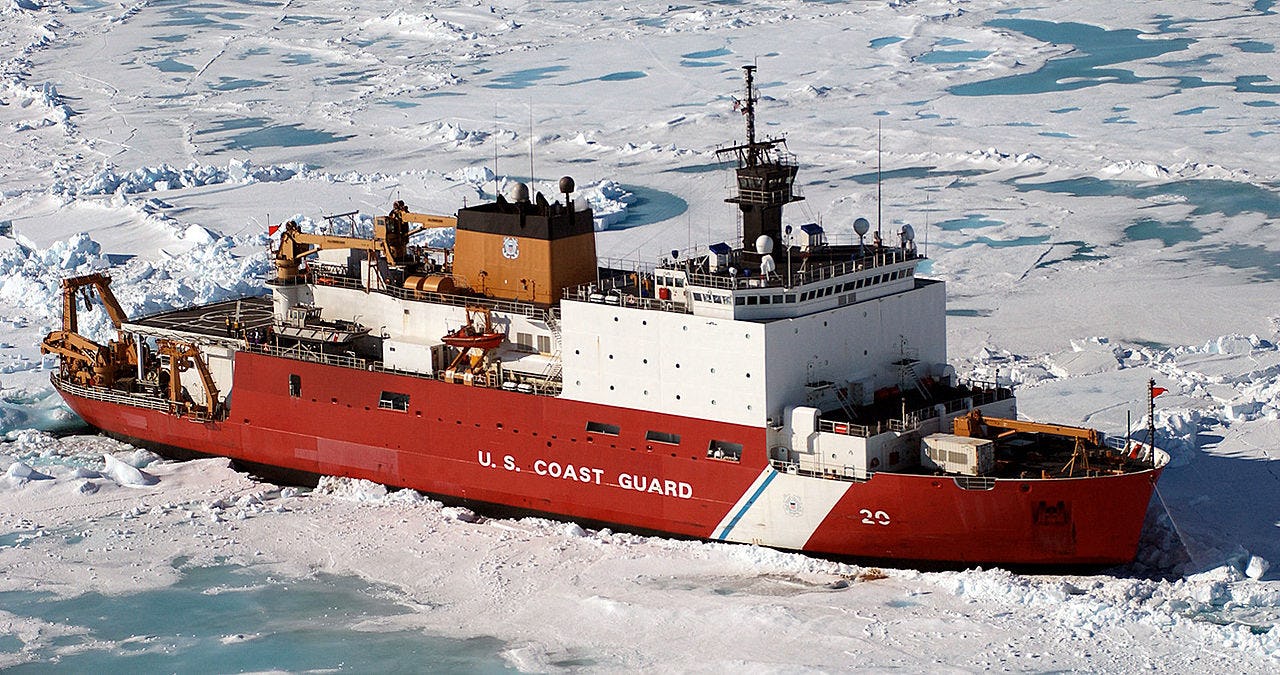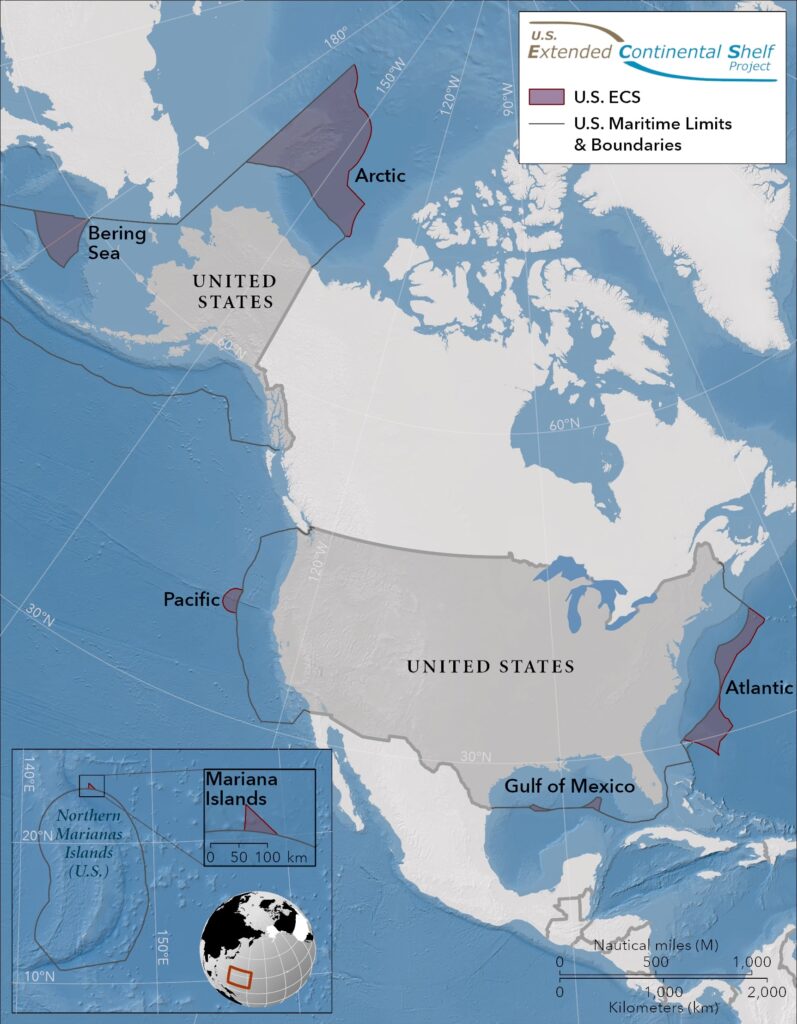The US Arctic Gambit: Testing the Limits of UNCLOS

U.S. Coast Guard Cutter Healy sits approximately 100 miles north of Barrow, Alaska, in order to conduct scientific ice research. Photo: United States Coast Guard
In recent weeks, the international community has witnessed two seemingly unrelated events that, upon closer examination, reveal a complex interplay of geopolitics and ocean governance.
On one side, there have been discussions within Russia about potentially withdrawing from the United Nations Convention on the Law of the Sea (UNCLOS), and on the other, the United States (US) has boldly announced the limits of the extended continental shelf in various regions, including in the Arctic. The US has not, however, presented a submission to the Commission on the Limits of the Continental Shelf (CLCS) as it is typically done in similar situations.
These events shed light on the geopolitical chess game between nations, particularly Russia and the US, as they navigate the intricate waters of international law of the sea.
Russia’s view of the world through the prism of rivalry with the US has long influenced its stance on global agreements, and UNCLOS is no exception. There have been discussions in Russia over the last thirty years about the significance of the law of the sea convention in the Arctic. Some people in Russia believe that UNCLOS’ ratification and implementation in the Arctic have limited the country’s room for maneuvering unnecessarily.
Conversely, proponents highlight the Soviet Union’s strategic success within UNCLOS, securing unprecedented rights in ice-covered areas and the procedure to obtain recognition for sovereign rights over a sizeable continental shelf.
The outer continental shelf regime, often considered the primary ‘carrot’ of UNCLOS, has worked in Russia’s favor, exemplified by its status as the first country to apply to the CLCS. However, the recent decision by the US to bypass the CLCS in announcing extended continental shelf limits sends a clear message — participation in UNCLOS may be perceived as burdensome and unnecessary.
The law of the sea recognizes two distinct criteria for entitlement to a continental shelf: either a distance of 200 nautical miles or the outer edge of the continental margin. In cases where the entitlement is anchored in the latter criterion, the coastal State is required to provide scientific evidence to support the claim.

The complexity of the legal regime for establishing the limits for extended continental shelf underscores the necessity of the CLCS as a credible institution to evaluate the legitimacy of such claims. The rights to a continental shelf exist inherently as a matter of international customary law, making it challenging to demand that the US obtain CLCS recommendations for their assertion. However, by circumnavigating the CLCS, the US undermines the established international process, creating uncertainty about the credibility and acceptability of the US’s extended continental shelf limits.
The US announcement is consistent with international law to the extent that it informs the world about the extent of its continental shelf. However, without a CLCS submission, other states are left to evaluate the credibility of the US announcement. Unlike situations where maritime zones’ outer limits depend on distance, assessing the credibility of limits based on scientific criteria poses challenges for other states lacking the necessary resources. The response from other nations should be straightforward: submit your data to the CLCS, adhere to the established process, and await evaluation like everyone else.
Russia and China, both parties to UNCLOS, often accuse the US of cherry-picking arguments and stretching interpretations in a way that disrupts the internationally accepted order. While it remains uncertain whether Russia will revoke its participation in UNCLOS, the US’s practice may bolster arguments of nations claiming a higher moral ground in defending international law against perceived exploitation. A response from the international community urging the US to adhere to established norms would reaffirm the importance of institutions like the CLCS in maintaining order in the complex realm of ocean governance.
Jan Jakub Solski is an associate professor at the Norwegian Centre for the Law of the Sea, UiT the Arctic University of Norway, Tromsø.